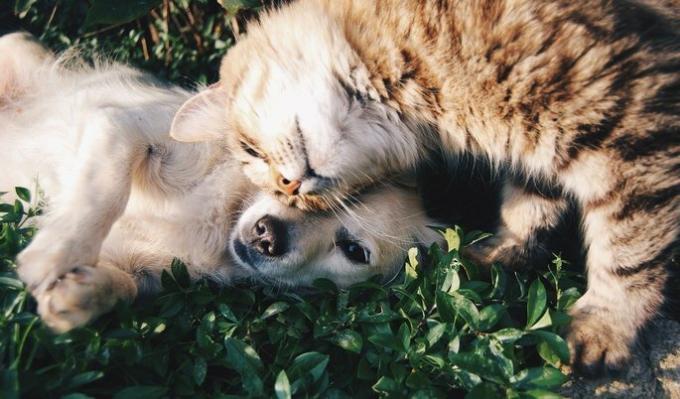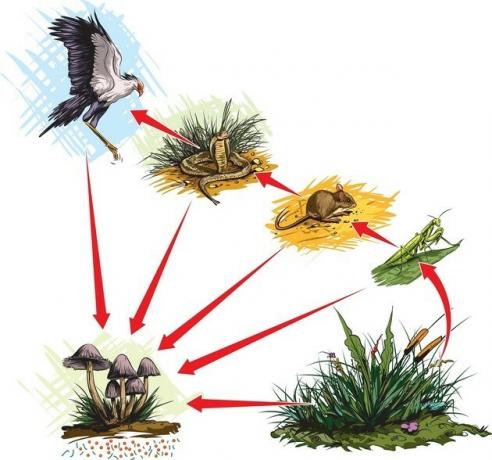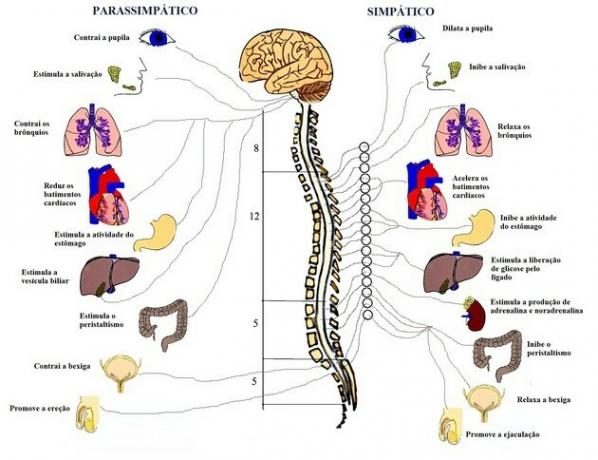Wild animals are wild animals, those found in nature, without the influence or without the habit of living with human beings. Domestic animals are those that, throughout history, have been conditioned and accustomed to living among human beings.
| Wild animals | Domestic animals | |
|---|---|---|
| Meaning | Wild animals, raised in nature, without intervention and not used to human interaction. | Animals accustomed to human interaction, either as pets or as a creation for consumption. |
| Characteristics | They live their whole life in nature, hostile or skittish behavior, diverse food according to their hunting or gathering, reproduction difficulties in captivity. | Accustomed to human-assisted rearing, docile behavior, capable of a single diet, difficulty or impossibility of living in nature. |
| Examples | Macaws, capybaras, alligators, lions, seals, elephants, jaguars, etc. | Dogs, cats, hamsters, horses, chickens, pigs, oxen, cows, sheep, goats, goats, etc. |
| Legislation |
Environmental Crimes Law - Law 9605/98 Decree 6514/08 |
Environmental Crimes Law - Law 9605/98 Pets and companion animals are also sheltered by property rights (Federal Constitution - Art. 5, XXII and Art. 170, II) Preventing the owner and his animal from circulating freely, as long as the rules are respected, is considered an illegal constraint (Art. 146 of Decree-Law No. 2.848/40) |
What are wild animals?
Wild animals or wild animals are considered all those that live naturally in freedom, without living with humans.
These animals can pose risks to people and/or may suffer damage caused by their maintenance in creations or captivity.
A short list of Brazilian wild animals:
- Birds: macaw, parrot, toucan, canary, hawk, etc.
- Mammals: monkey, monkey, marmoset, jaguar, tapir, capybara, ferret, etc.
- Reptiles: alligator, snake, iguana, turtle, tortoise, tortoise, lizard, etc.
- Other animals: fish, insects, arachnids, etc.
The Environmental Crimes Law - Law 9605/98 warns:
Crimes against Fauna
Art. 29. Killing, chasing, hunting, catching, using specimens of wild fauna, native or en route migration, without due permission, license or authorization from the competent authority, or in disagreement with the obtained:
Penalty - detention from six months to one year and a fine.
Thus, these animals cannot be bred in captivity or homes, except under authorization from the competent authority.
In Brazil, IBAMA (Brazilian Institute for the Environment and Renewable Natural Resources) is the body responsible for monitoring and authorizing the sale or breeding of animals wild.

Animal trafficking puts the integrity of many species at risk, some of which are at risk of extinction. People who are interested in owning a wild animal should look for places licensed by IBAMA.
What are domestic animals?
Domestic animals are species that have gone through a historical process and have become accustomed to living and interacting with humans.
The coexistence between humans and animals dates back to prehistoric times. Since then, several species have been tamed, tamed and domesticated. Some fulfilling a food function through their creation, others as companion animals.

List with some examples of domestic animals:
- For company - dogs, cats, horses, chickens, etc.
- For food - poultry, pigs, cattle, sheep, goats, etc.
See also the difference between:
- Turtle, tortoise and tortoise
- Donkey, donkey, donkey, donkey, mule and bardoto
- crocodile and alligator
- Food chain and food web
- ecosystem and biome



